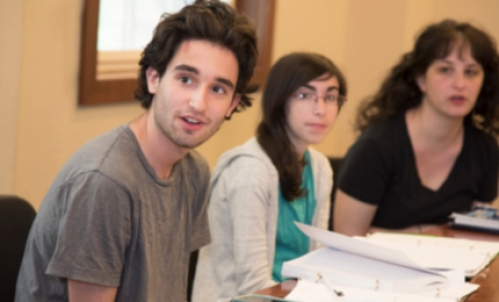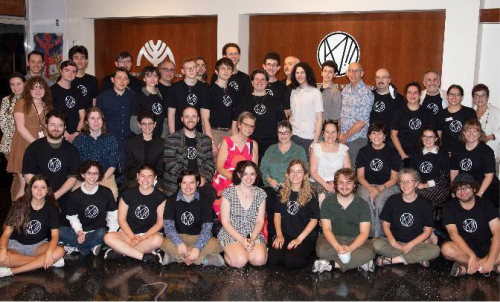2014 Jan Karski & Pola Nirenska Prize at YIVO Awarded to Piotr Matywiecki
The Jury of the Jan Karski and Pola Nirenska Award has the pleasure to announce that Mr. Piotr Matywiecki of Warsaw, Poland was named the recipient of the Karski Award for the year 2014. This annual award was endowed by Prof. Jan Karski in 1992 for an author of published works documenting Polish-Jewish relations and Jewish contributions to Polish culture.
The winner was chosen by the Award Committee whose members are Prof. Pawel Spiewak (Director, Jewish Historical Institute in Warsaw), Dr. Jonathan Brent (Executive Director YIVO Institute for Jewish Research), Dr. Joanna Nalewajko-Kulikov, Prof. Szymon Rudnicki, Dr. Joachim S. Russek, Prof. Jerzy Tomaszewski, Prof. Feliks Tych. The award ceremony will be held in September at the Jewish Historical Institute in Warsaw.
Piotr Matywiecki, for many years a librarian at the Warsaw University Library and a popular lecturer, is known as a prolific poet and essayist with a number of volumes of his own poetry as well as anthologies of Polish verse past and present which he edited. His collections of essays point to a large extent to the impact of the Holocaust on the choice of themes in his writings. Matywiecki’s most important work in this area is the collection “Kamien Graniczny” (Border Markers, 1994). It contains excerpts from letters, diaries and journals written inside the Warsaw Ghetto, with Matywiecki’s comments on the assembled voices from the ghetto. Born in June 1943 in Warsaw, the author takes up the topic of the sufferings of the Jews, and the phenomenon of evil, from an eschatological perspective. He further explores the topic of tangled Polish-Jewish relations in his vast biography “Twarz Tuwima” (Tuwim’s Face), devoted to the great Polish poet of Jewish descent Julian Tuwim and his lifelong struggle with the many adverse voices that denied him the right of acceptance in Polish society. Matywiecki returns to the subject of the viability of Jewish tradition in contemporary Poland in yet another collection of essays “Dwa oddechy. Szkice o tozsamosci zydowskiej i chrzescijanskiej” (Two Breaths: Essays On Jewish And Polish Identity, 2010).
The late Professor Jan Karski, the founder of the prize at YIVO, was the envoy of the Polish Government-in-exile during the Second World War, who brought to the West firsthand testimony about the conditions in the Warsaw Ghetto and in the German death camps. The prize is also named in memory of Professor Karski’s late wife, the choreographer Pola Nirenska.
Founded in the year 1925 in Vilna (Wilno, Poland; now Vilnius, Lithuania) as the Yiddish Scientific Institute, YIVO is dedicated to the study of the history and culture of Ashkenazic Jewry. Headquartered in New York City since 1940, YIVO today is the preeminent global resource center for East European Jewish Studies; Yiddish language, literature and ethnography, and the American Jewish immigrant experience. The YIVO Library holds over 385,000 volumes; the Archives has over 20 million archival items.

